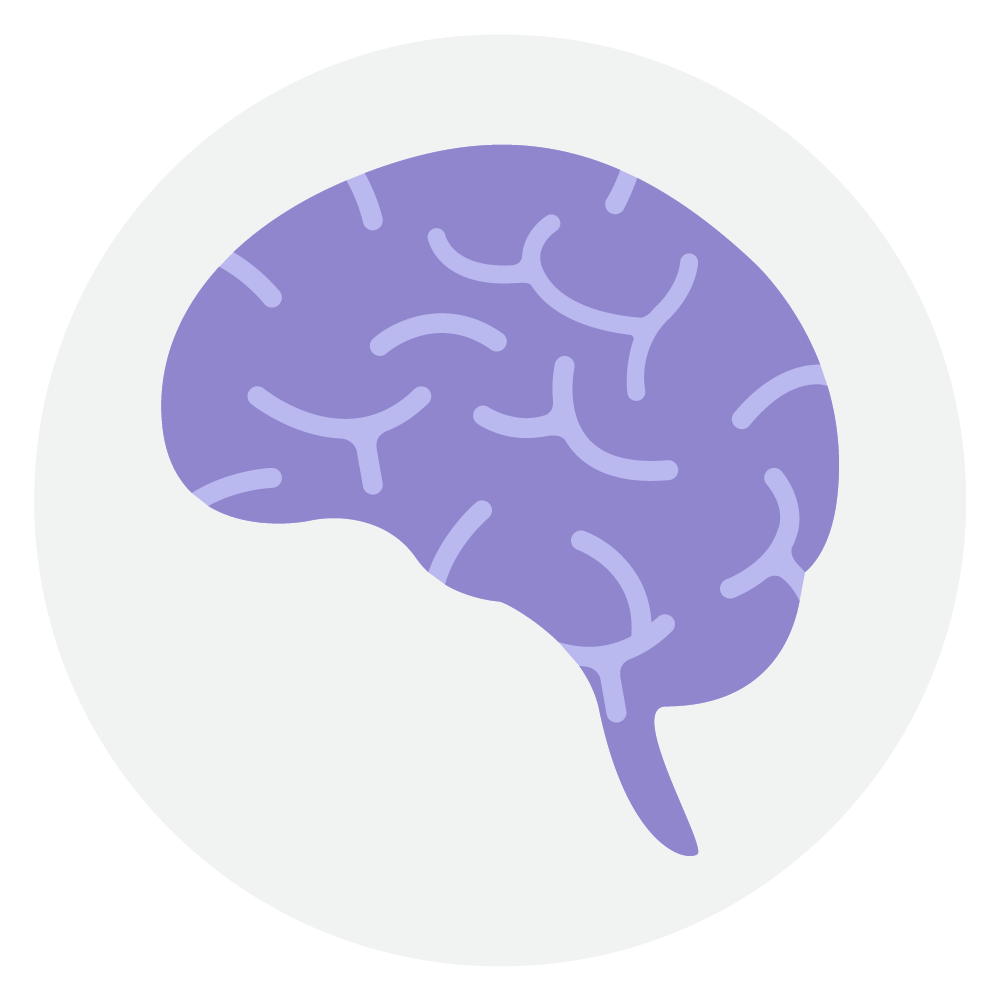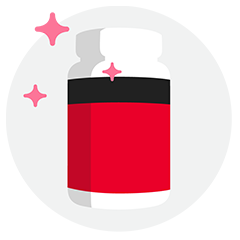Can poor gut health lead to stress?

According to Statistics Canada, 30% of Canadians between the ages of 35-54 consider most days to be stressful. Stress can manifest itself in a variety of different forms – from insomnia and high blood pressure to digestive upset. Researchers have long observed the impact stress has on gut health. However, new studies suggest it is actually a reciprocal relationship. This means that trouble in your gut could be the cause of increased stress.
What is the link between our gut and our brain?
If you’ve ever felt “butterflies” in your stomach in a moment of anticipation, you’ve already experienced the gut-brain connection firsthand.
Our GI tract is lined with over 100 million nerve cells, called the enteric nervous system (ENS). Researchers have established a communication system between the ENS and the brain, called the gut-brain axis. This communication occurs through gut microbes, hormones, and neurotransmitters, all starting within the gut microbiome.
The importance of the gut microbiome
Our gastrointestinal tract contains microorganisms, bacteria, viruses, protozoa, and fungi – all of which make up our gut microbiome. These microbes play a very important role in the gut, from nutrient absorption to protect against pathogens. They also control the digestion of food, help balance pH levels in the gut, aid in drug metabolism, and support the maintenance of the mucosal lining in the gut. The gut microbiome is also intertwined with the immune system, particularly by regulating immune homeostasis and inflammation.
What happens when our gut health is compromised?
A healthy and diverse gut microbiome is vital to gastrointestinal health. A variety of different factors affect the status of the microbiome including genetics, diet, stress, and/or frequent use of antibiotics and other medications. An imbalance of gut microbes has been linked to conditions within the GI tract and can affect health beyond the gut.
The impact of gut microbes on digestive health
When the gut flora is compromised, gastrointestinal conditions such as leaky gut can occur. Our intestinal lining controls what gets absorbed into the bloodstream, and is meant to be a tight, somewhat penetrable barrier. An imbalance in the microbiome has been shown to increase permeability by damaging or weakening the lining of the intestines, causing a leaky gut. Partially digested foods, bacteria, and toxins are released into the bloodstream as a result.
As these molecules pass through the intestinal wall, they are detected as foreign invaders by the body’s defense system, activating an immune response. This can lead to inflammation, food sensitivities, and even allergies. Increased intestinal permeability can also trigger other serious GI conditions, such as irritable bowel syndrome (IBS), and Crohn’s disease. Newer research also suggests a link between leaky gut and conditions beyond the GI tract, impacting mental health.
The impact of gut microbes on the gut-brain axis
In addition to its protective role within the GI tract, a healthy gut microbiome is essential for brain health. An imbalance of gut microbes has been linked to stress disorders, most notably anxiety and depression. Gut microbes signal to the brain and influence the two-way link of communication between the central and enteric nervous systems.
Gut bacteria have been shown to produce or modulate neurotransmitters like serotonin, dopamine, and GABA, all of which impact mood and behaviour. They also play an important role when it comes to the regulation of circulating hormone levels like estrogen, which impacts cognitive function, mood, and overall health. A healthy gut microbiome can do more for reducing stress than we ever thought possible!
Optimizing gut and brain health
As we understand the reciprocal relationship between the gut and the brain, taking care of one means taking care of both. Here’s where you can start:
Practice healthy lifestyle habits
Managing stress is vital when it comes to both brain and gut health. Eliminating it entirely is most likely out of the question – and in healthy amounts, stress is a normal part of life. However, we can avoid becoming a statistic by keeping our days (and minds!) as relaxed as possible. Meditation, focusing on quality sleep, and setting work-life boundaries are all effective ways to keep stress levels in check.
Eat a gut-friendly diet
Probiotics provide your gut with a plethora of good bacteria, keeping the microbiome healthy and diverse. Eating foods infused with these helpful bacteria (fermented foods such as yogurt, kimchi, and sauerkraut) or taking a probiotic supplement is beneficial for the gut microbiome, which in turn supports brain health.
Increasing daily fibre intake is a double win for the microbiome. Not only does our gut flora thrive and flourish on fibre, it also promotes regular bowel movements, which are vital to eliminating toxins from the body.
High sugar intake can feed the harmful bacteria in your gut, causing them to multiply, and creating an imbalance between good and bad bacteria. Reducing your sugar intake is key to keep your gut thriving.
It never hurts to take preventative measures
In addition to lifestyle and nutritional changes, repairing the gastrointestinal lining can help prevent gut dysbiosis from triggering additional conditions. Our Gut Repair formula can aid in the restoration of the intestinal lining, relieving inflammation of the digestive system. This will help it repair and heal, and since a healthy gut contributes to a healthy mind, your brain will thank you too.
Sources
Statistics Canada: Health Fact Sheets
The gut-brain axis: interactions between enteric microbiota, central and enteric nervous systems
Role of the gut microbiota in nutrition and health
Your gut is directly connected to your brain, by a newly discovered neuron circuit
Estrogen–gut microbiome axis: Physiological and clinical implications






